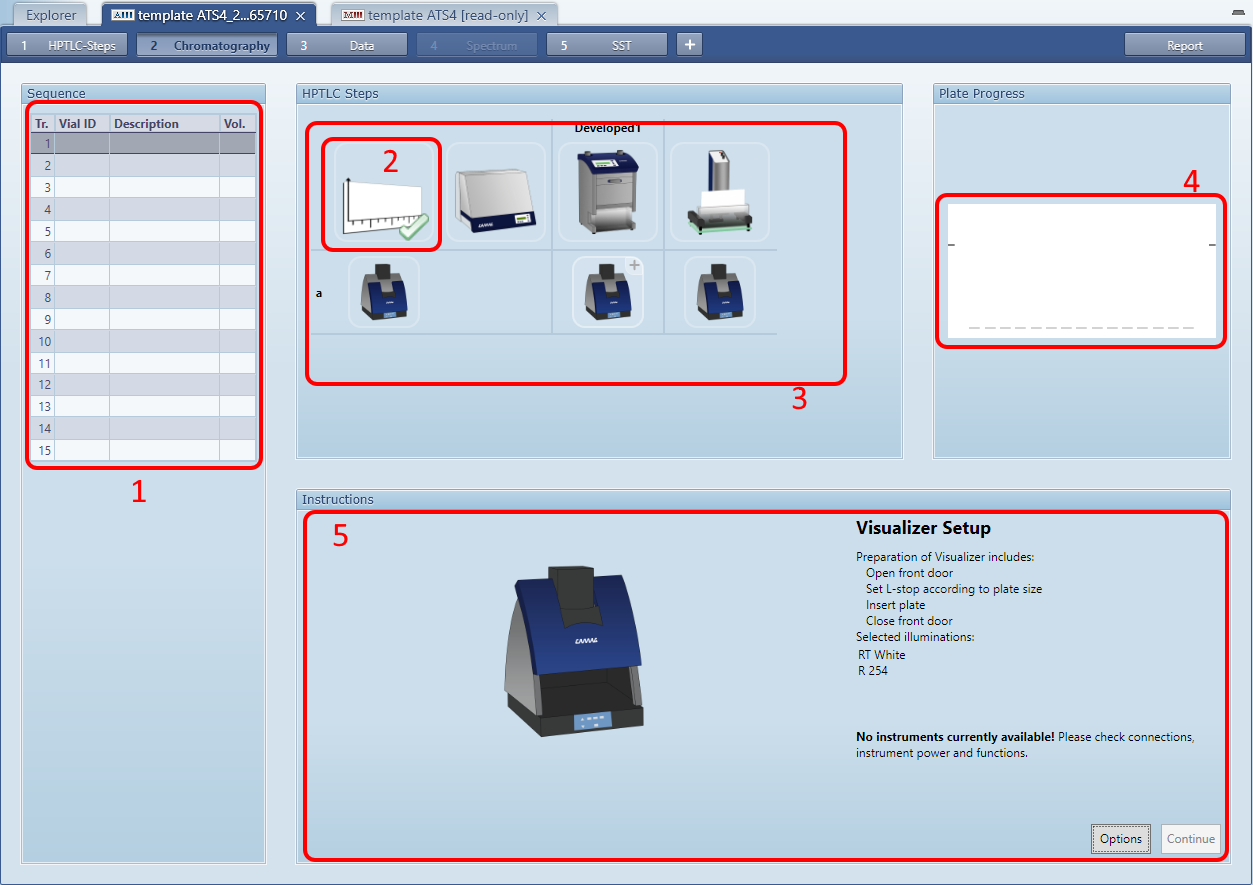Chromatography¶
The actual HPTLC is carried out in the Chromatography tab. The following tasks are available in this view:

Set or edit the Sample Sequence to be applied and analyzed. The analysis can be conducted only if a valid sequence table is defined.
Enter or edit the overall plate layout parameters.
Edit Instrument step parameters by clicking on each of the instrument icons. Starting with the Chromatography tab, visionCATS automatically gives a name for each step, based on the instrument type (Application, Development, Derivatization or Documentation) as defined in the HPTLC Steps tab. This naming convention is then used by default in all subsequent tabs:
Plate Layout is always unique in a method/analysis and always located at the top left of the Chromatography tab, as it represents global parameters in the current file.
Application, development and derivatization steps are always located on the top line, and each type begins with Applied, Developed or Derivatized respectively. For each instrument type, its position defines a suffix (number starting at 1).
Documentation steps always appear under the top line. When they appear before any application, development and derivatization step, they’re called Clean. Documentation steps are always suffixed with a letter starting with a. For example, based on the previous screen capture, the first Visualizer step will be called Clean 1a, the second Developed 1a and the third Derivatized 1a.
Starting with visionCATS 2.2, documentation steps can have a specific Documentation step label in order to facilitate the identification.
Check the setup with the track layout preview (bottom area in method and right area in analysis). When executing a step, the progression and the instrument states are displayed in this area.
Run the steps following the instructions view (analysis). This area is also used to display data during the execution of the steps, and gives a summary of the execution of the steps when the analysis is finished. See Instrument step execution.